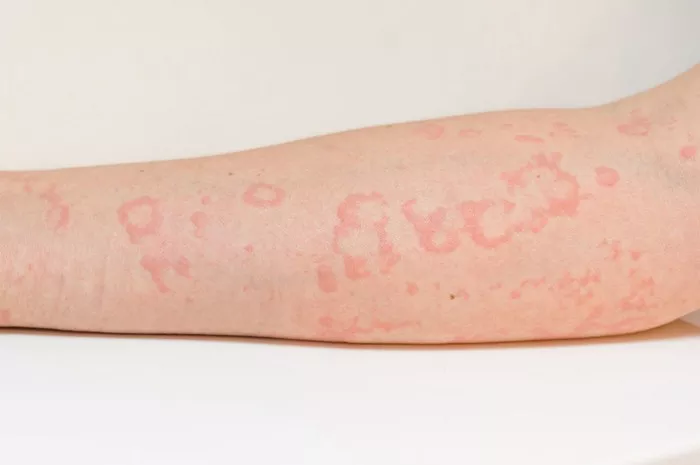Hives, also known as urticaria, can be a frustrating and uncomfortable skin condition characterized by itchy welts or raised, red bumps on the skin. While they often resolve on their own within a few hours to days, the itching and discomfort they cause can be unbearable. Antihistamines are commonly used to alleviate the symptoms of hives by blocking the action of histamine, a chemical released by the body’s immune system in response to an allergen. However, with numerous antihistamines available on the market, choosing the right one can be daunting. This article aims to provide an in-depth guide to help individuals find relief from hives by selecting the most suitable antihistamine.
Understanding Hives: Causes and Symptoms
Before delving into the realm of antihistamines, it’s crucial to understand the basics of hives. Hives can be triggered by various factors, including allergic reactions to certain foods, medications, insect bites, or environmental allergens such as pollen or pet dander. Additionally, hives can result from non-allergic causes such as stress, infections, or autoimmune disorders.
The symptoms of hives typically include raised, itchy welts on the skin that vary in size and shape. These welts may appear suddenly and disappear within a few hours, only to reappear in a different location. In some cases, hives can persist for several weeks or even months, leading to chronic discomfort and distress.
Antihistamines: The First Line of Defense
Antihistamines are the cornerstone of treatment for hives due to their ability to counteract the effects of histamine, the primary mediator of allergic reactions. By blocking histamine receptors, antihistamines help alleviate itching, reduce redness, and prevent the formation of new hives.
There are two main types of antihistamines: first-generation and second-generation. First-generation antihistamines, such as diphenhydramine (Benadryl) and hydroxyzine (Atarax), are known for their sedating effects and are often used to relieve acute symptoms of hives. However, they can cause drowsiness and impair cognitive function, making them less suitable for daytime use or activities that require alertness.
On the other hand, second-generation antihistamines, including cetirizine (Zyrtec), loratadine (Claritin), and fexofenadine (Allegra), are preferred for their non-sedating properties, making them suitable for long-term use and daytime symptom relief. These antihistamines are less likely to cause drowsiness and are generally well-tolerated by most individuals.
Choosing the Right Antihistamine: Factors to Consider
When selecting an antihistamine for hives, several factors should be taken into account to ensure optimal efficacy and minimal side effects:
1. Symptom Severity:
For mild to moderate symptoms of hives, second-generation antihistamines are usually sufficient. However, in cases of severe itching or discomfort, a short course of first-generation antihistamines may be necessary for immediate relief.
2. Duration of Action:
Consider the duration of action of the antihistamine, especially if symptoms persist throughout the day or night. Some antihistamines require multiple daily doses to maintain efficacy, while others provide once-daily dosing convenience.
3. Side Effect Profile:
Evaluate the potential side effects of each antihistamine, particularly sedation and drowsiness with first-generation agents. Choose an antihistamine that offers effective symptom relief with minimal adverse effects.
4. Drug Interactions:
Be aware of potential drug interactions, especially if you are taking other medications concurrently. Certain antihistamines may interact with other drugs, such as central nervous system depressants or anticholinergic medications, leading to additive effects or adverse reactions.
5. Cost and Accessibility:
Consider the cost and accessibility of the antihistamine, as some may be more affordable or readily available over-the-counter compared to others. Generic versions of certain antihistamines may offer cost savings without compromising efficacy.
Individualized Treatment Approach
It’s essential to recognize that there is no one-size-fits-all approach to treating hives, and what works for one individual may not be effective for another. Therefore, a personalized treatment plan tailored to the patient’s specific needs and preferences is paramount.
In some cases, a combination of antihistamines may be prescribed to achieve optimal symptom control. This approach, known as combination therapy, may involve using a first-generation antihistamine for immediate relief of acute symptoms, followed by a second-generation antihistamine for long-term maintenance therapy.
Additionally, adjunctive therapies such as topical corticosteroids, oral corticosteroids, or leukotriene receptor antagonists may be considered for refractory cases of hives or when antihistamines alone are insufficient.
Consultation with a Healthcare Provider
Before initiating any treatment regimen for hives, it’s crucial to consult with a qualified healthcare provider, such as a primary care physician or dermatologist. A healthcare provider can perform a thorough evaluation to determine the underlying cause of hives and recommend appropriate treatment options based on the individual’s medical history, severity of symptoms, and treatment goals.
During the consultation, be sure to discuss any pre-existing medical conditions, allergies, or medications you are currently taking to avoid potential drug interactions or adverse effects. Additionally, inform your healthcare provider if you are pregnant, breastfeeding, or planning to become pregnant, as some antihistamines may not be recommended during pregnancy or lactation.
Conclusion
Hives can be a distressing and uncomfortable skin condition, but relief is within reach with the right antihistamine. By understanding the underlying mechanisms of hives and considering factors such as symptom severity, duration of action, side effect profile, drug interactions, cost, and accessibility, individuals can make informed decisions when choosing an antihistamine for hives.
Remember to consult with a healthcare provider for personalized guidance and recommendations tailored to your individual needs. With proper treatment and management, hives can be effectively controlled, allowing individuals to enjoy improved quality of life and relief from itching and discomfort.


























